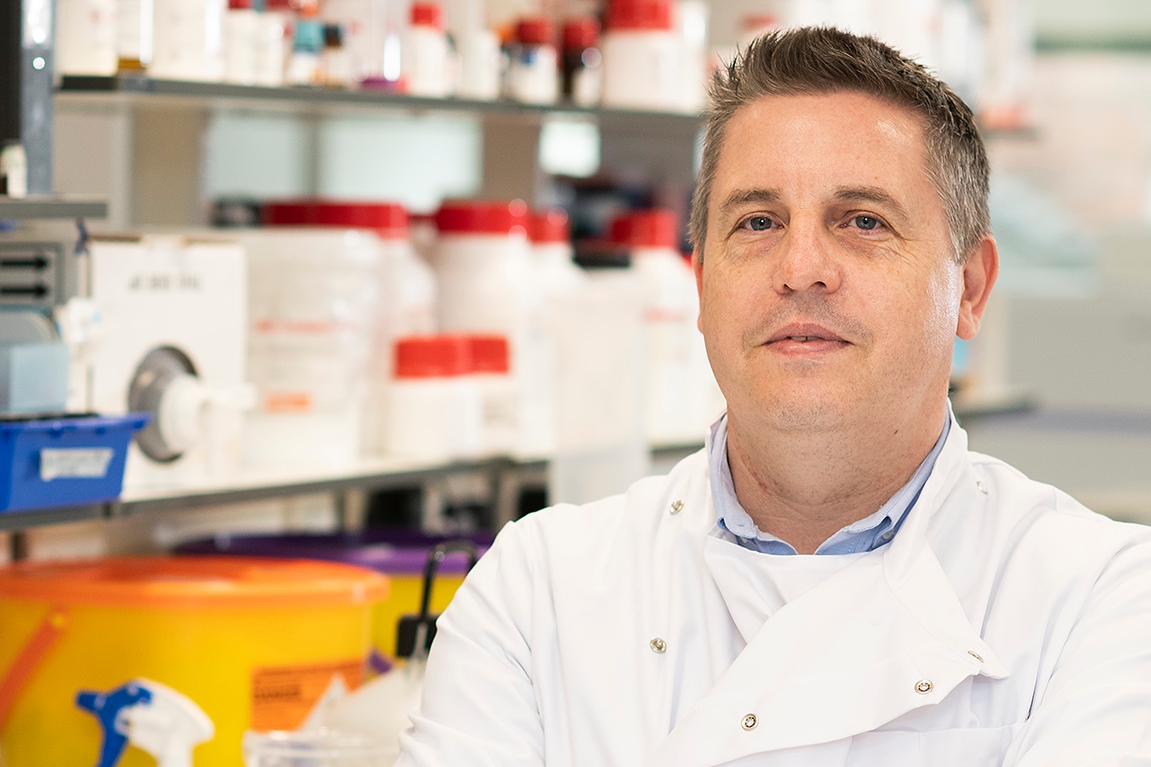Queen’s researchers discover groundbreaking way to treat major sight-threatening diseases of the eye
Researchers from Queen’s University Belfast have discovered a new way of treating major diseases of the eye caused by the abnormal growth of new blood vessels.

- WHO estimates that in 2010 there were 285 million people visually impaired, of which 39 million were blind
- This new research will enable the creation of new, better, treatments against a number of sight-threatening diseases
- The research team’s may also help to devise new strategies to mend hearts after a heart attack
Researchers from Queen’s University Belfast have discovered a new way of treating major diseases of the eye caused by the abnormal growth of new blood vessels.
The research recently published in US journal JCI Insight was funded by the British Heart Foundation Northern Ireland (BHF NI).
The study shows that a specific protein found within the body called ‘CAMKII’, acts to co-ordinate the different signals that cause new blood vessel growth.
These new findings provide a previously unknown understanding of how blood vessels grow in the body and offer a basis for the development of new treatments which are likely to have a significantly higher success rate for patients.
The retina is the light-sensing part of the eye and its role in vision is supported by blood vessels which provide essential oxygen and nutrition. Normally these vessels remain unchanged during adulthood, but in some eye conditions, such as diabetic retinopathy and age-related macular degeneration (AMD), they start to grow uncontrollably. This can lead to damage to the retina and result in vision loss and even blindness.
The current best treatment for these conditions involves monthly injections into the eye with a drug that blocks a molecule called ‘vascular endothelial growth factor’ (VEGF). However, this drug is not effective for up to 50 per cent of patients. Resistance to this treatment is thought to occur because of the presence of other signals that drives the damaging uncontrolled blood vessel growth.
The research team, led by Professor Tim Curtis at the Wellcome-Wolfson Institute for Experimental Medicine at Queen’s University, has discovered a means of blocking this growth factor, as well as several of the other signals.
Professor Tim Curtis, Lead Investigator of the study and Deputy Director at the Wellcome-Wolfson Centre for Experimental Medicine at Queen’s University, explained: “Our study has pinpointed a key regulator of abnormal blood vessel growth in the eye that will enable us to design new, better, treatments against a number of sight-threatening diseases.”
Professor Alan Stitt, Researcher on the study and Dean of Innovation and Impact within the Faculty of Medicine, Health and Life Sciences at Queen’s University, said: “These results are exciting and offer the prospect of improved outcomes for the many patients who suffer from sight-threatening diseases.
"Our work is a clear example of how better understanding disease can open up new opportunities for treatment and improve patients’ lives.”
The research was funded by BHF NI as the blood vessels of the eye and the heart share several common characteristics and the eye is a less invasive way of understanding possible breakthroughs for heart treatments.
Karen McCammon from BHF NI said: “The research team’s understanding of how blood vessels form and grow may also help us to devise new strategies to mend hearts after a heart attack. Every week heart attacks devastate local families by killing loved ones and leaving many others with debilitating heart conditions that make the rest of their lives a daily struggle.
“After a heart attack many patients make a full recovery and within a few months are able to return to their normal activities. But, for others it can lead to further problems such as heart failure which can be a devastating condition to live with. Knowing how to control blood vessel growth might help discover new ways to repair failing hearts by improving blood supply to damaged heart muscle.
"Professor Curtis’s research could help the thousands of people who have a heart attack here every year return to a normal and full life.”
